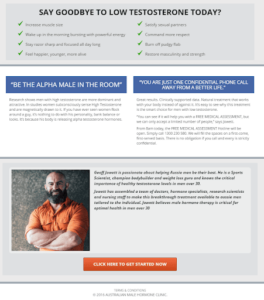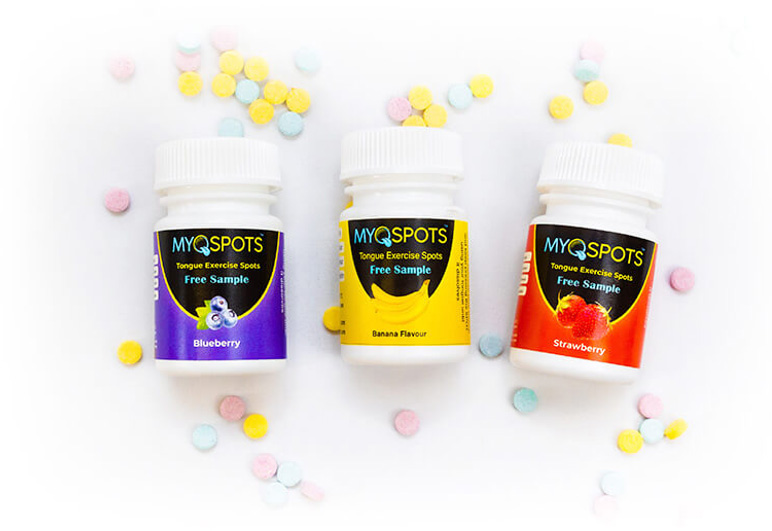Marketing doesn’t need to be a dirty word in healthcare.
Yet it so often is. I’ve now worked with more doctors, allied health professionals and medtech entrepreneurs than I can count. And I’ve seen many squirm at the thought of marketing their products or services – even as they wonder how to attract new patients or clients and grow their business.
For some, marketing can feel like a swindle pulled by big companies like Nike or Coca-Cola to persuade you to buy more things you don’t really need (or do you to quench that thirst?). And that’s a totally different mindset to healthcare, where many dedicated professionals work hard to improve the human condition.
But think about it this way: if you’re providing health services or have developed a new healthcare product, your goal is presumably to help people enjoy good health. For you to do that, people have to know you’re there. They have to know what you offer and see how you stand out. They have to feel a connection with you.
Marketing creates all that. And when it’s done in the right way, it isn’t slick or manipulative – because that’s not you. Instead, it’s a genuine conversation that builds a mutually beneficial relationship between you and your customers.
Kevin Costner’s character in Field of Dreams said, ‘Build it and they will come,’ and it worked in the movie – but real life is different. For your patients or customers to come to your practice, you have to put in the effort to tell them what you offer and why they should come.

That means you need to understand your audience and market yourself in a way that engages them.
So, if marketing feels ikky to you, please keep reading.
I hope to show you how marketing can be authentic, ethical and data-driven, how it builds bridges between a business and its clientele and how it delivers a strong return on investment that helps grow your practice.
Authentic healthcare marketing
Good marketing is like your favourite outfit. It reflects your personality and creates a sense of who you are. It makes you look and feel great.
Authentic marketing starts by knowing who you are. No two healthcare practitioners or practices are the same. Each is shaped by the people who work there, the patients you see, the area you’re in and your values as a leader.
Not sure who you are in business? Start by asking yourself and your team a few questions like:
- Why did we start this practice or business?
- What did we want to do differently from the other places we’d worked?
- Why is our work important?
- Why do you come to this workplace (beyond to get paid)?
- Do you feel you’re making a difference? How? Why do you care about working here?
- What feedback do you hear from patients about why they use our practice? Or customers about why they use our products? What are you doing that makes a difference in their lives?
Hopefully, by digging a bit deeper like this, you’ll be able to uncover some useful information that can help you market your practice in a way that truly reflects who you are.
When the messages you share about your business feel genuine, you begin to feel more comfortable with marketing because it feels more authentic.
Ethical healthcare marketing
We’ve all seen examples of unethical healthcare marketing.
Perhaps the most infamous Australian example is the Australian Male Hormone Clinic, which was convicted of 17 charges and fined $127,000 for unlawful advertising in a case brought by the Australian Health Practitioner Regulation Agency (AHPRA).

Advertising like this misleads customers, preys on their vulnerabilities and creates unrealistic expectations of a successful outcome. It’s unworthy of healthcare professionals or healthcare businesses.
Thankfully, Australia has a strong regulatory system to protect consumers from unethical marketing like this. Both AHPRA and the Therapeutic Goods Administration (TGA) place a range of restrictions on how healthcare professionals, pharmaceutical companies and medical device companies can advertise.
When you stay within these guidelines, you can be confident you’re marketing your services or products in an ethical way.
Data-driven marketing
As a healthcare professional or business owner, you’re used to relying on evidence to guide decisions. That evidence may be randomised controlled trials, a patient’s test results or a business’s financial reports. Data stops you from making ‘gut-feel-only’ decisions and ensures there’s objective evidence you can rely on.
Does marketing feel blurry and vague in comparison? Do you feel like you’re spending money without understanding where it goes or how it helps? Then you need a better marketing agency.
Digital marketing yields a wealth of data that should be shared with you as the client. When we run a marketing campaign on Google Ads, Facebook, Instagram, LinkedIn or practically anywhere else, we receive a great deal of de-identified information about who clicked on your ad, who visited your website, how long they stayed there and whether they ultimately contacted you.
If your campaign is working well and bringing in new clients, we can double down on it. If the data shows that we could do better, we’re able to adapt very quickly, making edits to your online ads or webpages to better connect with your audience.
Marketing builds bridges between you and your clientele
Lin- Manuel Miranda’s hit musical, Hamilton, tells the story of one of America’s lesser-known founding fathers, Alexander Hamilton. He was a hot-headed, intelligent, colourful character who was fatally shot by the Vice President of the time in a duel.
Before his untimely death, Hamilton had commanded troops in the American Revolution, worked alongside George Washington, helped write the US Constitution and created the new country’s financial system, arguing for a strong federal government against those who preferred to prioritise state powers.
The Broadway version of his life ends with a haunting song called, Who lives, who dies, who tells your story?
And who did? His wife, Eliza. Over the decades that followed Hamilton’s death, she worked tirelessly to re-organise and preserve his writings, ensure a faithful biography was written, and persuade Congress to purchase Alexander’s voluminous writings and add them to the Library of Congress, where historians could have access to them. Our knowledge of Hamilton today is largely due to Eliza’s efforts.
So, who tells your story? Who ensures you don’t slip into obscurity? And who’s listening?
Storytelling is a powerful marketing technique that helps to create relationships with your readers. Tell the tale of why you’re in business, what motivates or inspires you, and how you can help.
Remember though, that you’re not telling your story into a void. You’re trying to communicate to a particular audience. That might be investors, prospective patients or other healthcare businesses.
Before you write a word, you need to think about who these people are.
What problems do they face?
What state are they in, physically, mentally or emotionally?
What matters to them and why?
What is their level of health literacy?
Then think about how you communicate with them.
Your tone and choice of words will change depending on your intended audience. Investors or professional colleagues will probably expect more formal language whereas a conversational tone (with medical jargon translated to plain English) works best for patient-facing communications.
Marketing delivers a strong return on investment
Marketing is an investment. It’s not an expense like your electricity bill. It’s an investment that should deliver a return to your business.
Remember all that digital marketing data I mentioned above? We measure how many new patients or clients your marketing generated. Each one of those brings a certain amount of money into your practice. And that’s how we calculate the return on your investment.
So, there you have it. Marketing isn’t a dirty word in healthcare. You’re not engaging in a morally dubious enterprise by marketing your products or services. You’re telling your story in a way that resonates with your audience and enables you to achieve your goal of improving people’s health.
Hamilton would not be the worldwide success it is today without marketing. Marketing is the lifeblood of any business, helping you gain and retain patients so you can develop your practice further.
If you’d like to find more about authentic, ethical, data-driven marketing that delivers a strong return on your investment, please contact me and the team at Splice Marketing. We’d love to tell your story.







